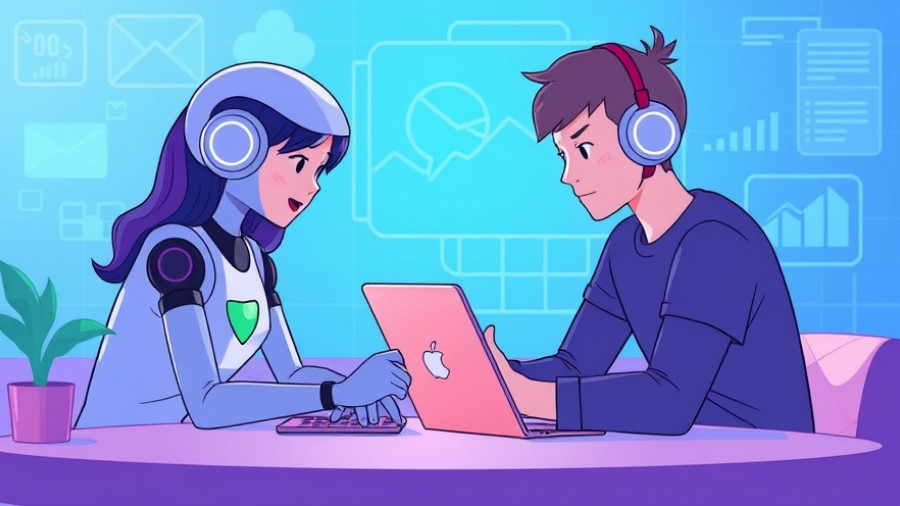
Transforming Teen Interactions in the Age of AI
Meta, the tech giant known for its social media platforms, has announced exciting new parental controls meant to enhance safety for teens engaging with artificial intelligence (AI) chatbots. Scheduled for rollout early next year, these features come amidst growing concerns about the implications of AI interactions on young users. With over 70% of teens now using AI companions regularly, according to a recent study, the demand for responsible management of these interactions is more crucial than ever.
Understanding the New Features
The forthcoming controls will empower parents to tailor their teens' experiences significantly. They will have the option to completely disable one-on-one chats with AI characters or selectively block certain chatbots. While parents will receive insights into the topics their teens discuss with AIs, they will not have access to full chat logs. This is a strategic move intended to balance privacy and safety. Importantly, Meta's AI assistant, which offers educational content, will remain accessible, ensuring teens can receive helpful information without alarming distractions.
The Broader Context of AI and Teen Safety
This initiative comes in the wake of increased scrutiny surrounding how AI can affect mental health. Recently, both Meta and other tech companies have faced investigations, including from the FTC, regarding the potential harms their products may pose to young users. The new parental controls are perceived as a preventive measure against potential legislation targeting tech companies that fail to protect children adequately. Advocacy groups, however, remain skeptical, urging deeper accountability and urging that Meta’s offerings might merely appease parental concerns without leading to substantial change.
Setting Content Appropriateness Standards
Meta has committed to applying PG-13 standards to content presented to teen accounts on its platforms. This includes AI interactions, where chatbots are now barred from making references to sensitive topics like self-harm or engaging in inappropriate romantic conversations with minors. Such regulations are essential steps in fostering safer environments for teenagers, aligning them with the viewing limitations of films rated PG-13. Nevertheless, this action raises questions about the efficacy of these content filters in real-world applications.
A Community Perspective: Balancing Innovation and Safety
Emily Brooks, a local journalist based in the San Francisco Bay Area, emphasizes the importance of community dialogue in addressing the ramifications of AI technologies. She notes that many parents are increasingly conscientious about their teens’ digital footprint and are looking for tools that genuinely help maintain that safety. As AI technologies evolve, continuous engagement with parents, educators, and mental health advocates is vital to ensure community voices contribute to shaping the future of digital interactions.
How Parents Can Navigate These Changes
As the rollout of these tools is approached, parents are encouraged to have open conversations with their teens about their activities online. They should explore the new parental controls together, discussing what these features mean for their interaction with AI and the importance of guided engagement in a digital-first world. With technology rapidly advancing, parents need to remain informed advocates for their children while helping them navigate this constantly changing online landscape.
A Call to Action: Engaging with Your Teen’s Online World
Parents in the Bay Area should take this opportunity seriously. By learning about and utilizing Meta's parental control features, they can help create a safer online environment for their teens. Engaging in regular discussions about both the benefits and potential pitfalls of AI technology can lay the groundwork for responsible digital citizenship among young learners.
 Add Row
Add Row  Add
Add 



Write A Comment